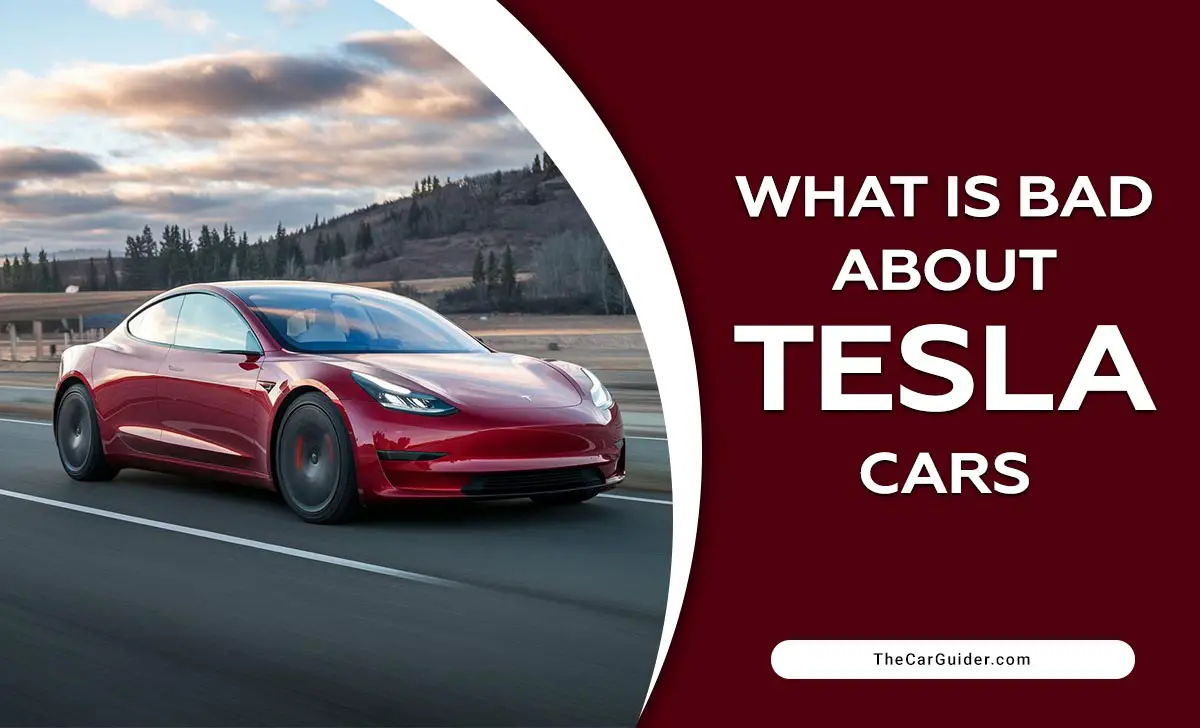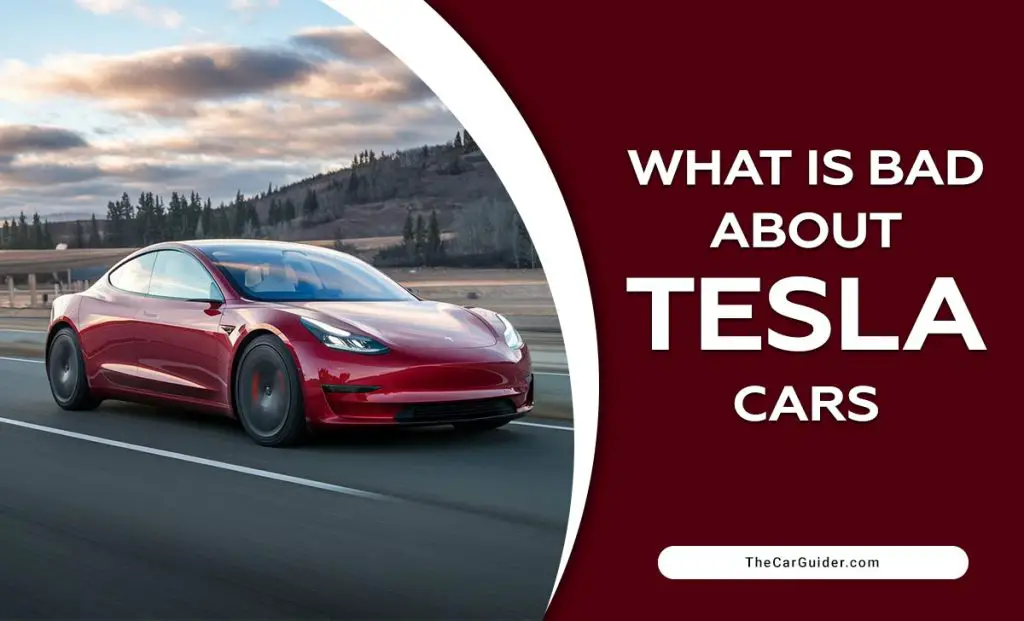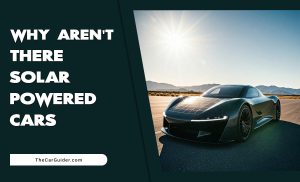Tesla cars, known for their innovation and forward-thinking electric vehicle (EV) technology, have set the standard for the EV market. Models like the Tesla Model S, Model Y, and Model 3 have amassed a devoted following, drawing praise for acceleration, futuristic design, and the convenience of Tesla’s Supercharger network.
However, despite their popularity, Tesla vehicles are not without drawbacks. From reliability concerns to safety issues, here’s an in-depth look at some of the commonly reported problems with Tesla ownership.

1. High Purchase Cost
Tesla cars are a significant investment, with the Tesla Model S, Model X, and new Tesla models often priced well above traditional cars. Although the company has added affordable options like the Model 3 and Model Y, the initial outlay for a Tesla can still be challenging for the average buyer.
Additionally, Tesla’s pricing structure is unique in that it avoids traditional dealerships, meaning there’s little room for negotiation—a notable disadvantage for cost-conscious consumers.
2. Reliability Concerns And Quality Issues

One major criticism levied against Tesla cars, especially from sources like Consumer Reports, is their reliability. Tesla vehicles have experienced issues with build quality, especially with early versions of new models. Common complaints include misaligned panels, problematic paint finishes, and steering wheel malfunctions.
For instance, the Model Y has been reported to have rear seat defects, while the Model 3 and Model S have faced issues with interior durability. Consumer Reports has flagged Tesla’s reliability as a concern compared to other electric vehicle options like the Hyundai Ioniq.
3. Limited Repair Options And Long Wait Times
Tesla owners often face challenges when it comes to repairs. Unlike traditional automakers, Tesla does not operate through a widespread network of dealerships, so service options can be limited. Many owners report long wait times for repairs and replacement parts, particularly for rare models like the Tesla Roadster.
When repairs are necessary, costs can be high due to limited service centers and specialized parts. For many Tesla owners, these issues have been a major drawback to Tesla ownership, especially for those accustomed to faster service from brands like General Motors or Land Rover.
4. Charging And Range Anxiety

While Tesla’s Supercharger network has made long-distance travel easier, charging remains a challenge compared to the convenience of a gas station. Charging stops during road trips can extend travel times by hours, a point many Tesla owners consider a downside.
The Model S, Model Y, and other Tesla models are also affected by weather conditions, with cold climates significantly reducing range. This limitation can make it difficult for those who frequently travel long distances or live in areas with limited charging infrastructure.
5. Software And Data Privacy Concerns
Tesla vehicles are highly integrated with software, including the Tesla app that allows remote control features. While innovative, these features raise concerns about privacy.
Tesla’s collection of personal information and vehicle data is extensive, sparking worry among some owners about potential data misuse. Although Tesla has security measures in place, some consumers feel uncomfortable with the degree of personal information collected, especially as car connectivity continues to expand.
6. Autopilot And Safety Concerns
Tesla’s Autopilot and Full-Self Driving (FSD) features have been at the forefront of the autonomous driving movement. However, these systems have been controversial. Despite impressive advancements, critics argue that Autopilot can create a false sense of security, leading to safety risks.
Instances of Tesla vehicles misinterpreting road conditions have been reported, which can put drivers at risk. While Tesla fans may argue that these systems are cutting-edge, regulatory bodies and car reviews often cite Tesla’s autonomous driving features as risky compared to other safety measures available from traditional automakers.
7. Expensive Repairs And Maintenance

Tesla parts and services are often more expensive than those of traditional cars. While Tesla cars generally require less frequent maintenance than gasoline vehicles, components like tires and batteries can be costly. Tesla’s custom tire sizes and unique designs mean that replacements are often pricier than average. This can be a major drawback for those expecting an electric car to be cheaper to maintain.
8. Limited Customization And Dealership Experience
Tesla’s direct-to-consumer sales model means buyers can’t negotiate prices or customize their vehicle through traditional dealerships. While some appreciate the simplicity, others miss the customer service benefits provided by dealerships. In the traditional model, dealerships offer added conveniences, from test drives to after-sale service, that are limited or absent in the Tesla ownership experience.
9. Tesla Stock And Market Volatility

Tesla stock has contributed significantly to the brand’s visibility and appeal, but it’s also highly volatile. Fluctuations in Tesla stock can lead to perceptions of instability and impact the company’s ability to innovate at a consistent rate. For some consumers, this volatility reflects negatively on the brand, raising questions about the long-term stability of Tesla compared to well-established automakers.
10. Limited Options For EV Ownership In Remote Areas
Tesla ownership can be impractical in areas with fewer charging stations and service centers. This is a particular challenge in rural areas and smaller cities where electric vehicle infrastructure is underdeveloped. As a result, Tesla lovers who live in these areas may find the EV experience more complicated compared to owning a gasoline or hybrid vehicle from brands with broader dealership networks.
Conclusion
Tesla has undeniably transformed the EV market, driving innovation and leading EV sales. However, Tesla vehicles are not without drawbacks, including high costs, reliability concerns, limited repair options, and challenges with Autopilot.
While these issues might not deter Tesla fans, they are worth considering for potential buyers evaluating the pros and cons of Tesla ownership. Tesla models like the Model S, Model Y, and Cybertruck are excellent representations of the future of the electric car market, but careful consideration is necessary before making the investment.
Frequently Asked Questions (FAQs)
1.Are Tesla Cars Expensive To Repair?
Yes, Tesla repairs are often costly due to specialized parts and limited service centers, making repairs more expensive than those for traditional gasoline vehicles.
2.Do Tesla Cars Have Reliability Issues?
Some Tesla models, including the Model S and Model Y, have faced quality issues, such as misaligned panels and paint defects. Reliability can vary by model and production year.
3.Is Tesla Autopilot Completely Safe?
Tesla Autopilot is a driver-assist feature, not fully autonomous driving. It requires driver attention and is safest when used correctly, but some users have experienced issues with the system in certain conditions.
4.How Does Cold Weather Affect Tesla’s Range?
Cold weather can significantly reduce the range of Tesla vehicles. Cold temperatures require more battery power for heating and can reduce performance, especially on longer trips.
5.Are There Enough Tesla Charging Stations?
Tesla’s Supercharger network is extensive, but certain rural or remote areas may lack charging stations. This can make long-distance travel more challenging for Tesla owners compared to gasoline vehicles.






